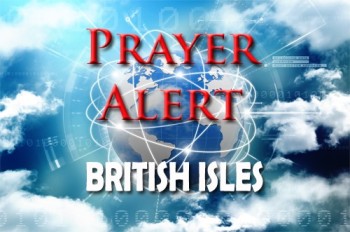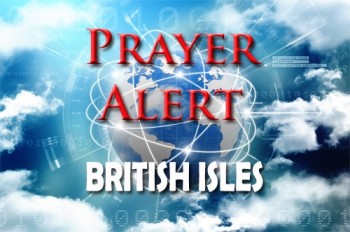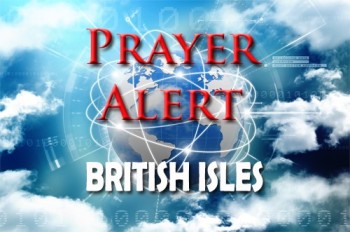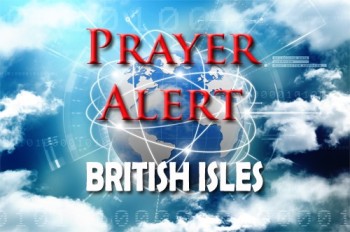Displaying items by tag: Stormont
Northern Ireland: Sunak to examine proposals for greater defence role
Rishi Sunak has expressed willingness to review a report suggesting Northern Ireland should enhance its role in the UK's national security. He did so during Prime Minister’s Questions, where DUP leader Sir Jeffrey Donaldson praised Sunak for reviving Stormont's political institutions, strengthening the union, and revitalising Northern Ireland's economy and political landscape. He urged Sunak to consider the Policy Exchange report, which recommends increasing Northern Ireland's contribution to national defence. The report highlights Northern Ireland's strategic importance, advocating for expanded naval and air operations against Russian threats and urging collaboration with regional partners for collective security. Sunak commended Sir Jeffrey's leadership and acknowledged the enhanced union due to the return of devolution.
Northern Ireland: DUP deal aimed at restoring power-sharing
A new deal between the UK government and the Democratic Unionist Party (DUP) aims to restore power-sharing in Northern Ireland by reducing checks on goods moving from the UK to Northern Ireland. The deal, which could quickly lead to the return of devolution, is seen as a pivotal step in resolving tensions which arose from post-Brexit trade rules. NI secretary Chris Heaton-Harris praised the agreement, and DUP leader Sir Jeffrey Donaldson claimed it effectively removes the Irish Sea border for goods. The deal, endorsed by the DUP's executive, will be accompanied by legislation to reinforce NI's economic ties with the UK, and is expected to swiftly pass through Parliament. This development, a significant milestone in restoring local governance, addresses long-standing political and trade concerns in the region.
Sunak offers to sacrifice Brexit freedoms to resolve Stormont impasse
Rishi Sunak has proposed compromising some of Britain's Brexit freedoms to encourage the return of devolved government in Northern Ireland. He plans to introduce a requirement that all new laws undergo screening to ensure they won't create additional trade barriers in the Irish Sea, aiming to persuade the Democratic Unionist Party (DUP) to end its two-year boycott of Stormont, which has paralysed Northern Irish politics. All laws would have to come with a ministerial statement confirming they would not significantly harm internal UK trade. If Britain diverges from EU rules, these checks could increase, potentially blocking new laws that differ from Brussels. Unionists argue that the current arrangement harms the Northern Irish economy. While Sunak's offer aims to guarantee no new laws will create more trade barriers between Great Britain and Northern Ireland, critics argue it would tether the UK to European standards and limit the benefits of Brexit. The DUP leader, Sir Jeffrey Donaldson, has been in talks with the government over returning to power-sharing in Stormont but has faced resistance within his party.
Stormont talks: Sir Jeffrey tiptoeing his way to a deal?
Sir Jeffrey Donaldson, the DUP leader, seems to be cautiously moving towards a deal that could see his party return to Stormont. He acknowledges the final stages of negotiation as the most challenging, hinting at internal party disputes. This development follows the collapse of Northern Ireland’s government in February 2022 over post-Brexit trading arrangements, known as the Irish Sea border. The key issue is the proposed UK Internal Market Act amendment, ensuring Northern Ireland businesses can access the UK market. However, this primarily addresses goods moving from Northern Ireland to Great Britain, not the reverse, which involves checks and paperwork under the Windsor Framework. The DUP appears open to some checks to prevent criminality and smuggling. Additionally, measures to reinforce Northern Ireland's union status, such as a new East-West council, are being discussed, but their decision-making power is uncertain. The government is eager for a quick decision, with a potential financial incentive of above £2.5 billion. If no agreement is reached soon, secretary of state Chris Heaton may need to take decisive action, potentially concluding negotiations with the DUP and revealing the proposed deal.
Northern Ireland: discussions to restore devolution
Northern Ireland has been without a devolved government for three years. Proposed legislation for an Irish language act and reforming the assembly's controversial veto system are among the key sticking points in ongoing talks. The DUP has been accused of holding up a deal. Sinn Féin's Declan Kearney said on 9 January that the situation is at the point where closure must be found. After three days of talks, the text of a draft deal has been shown to the DUP and Sinn Féin, but not yet to the smaller parties, who feel they are being left out again. Some think that the two main parties have done enough negotiating, and a final call needs to be made. Since Stormont collapsed, civil servants have run day-to-day operations. In July the Government extended a law that gives civil servants flexibility to take certain decisions, but that runs out on 13 January.
Northern Ireland: strike and Stormont
On 19 December, 15,500 NI nurses began a twelve-hour strike over pay and staff numbers. The NI secretary, Julian Smith, believes the action illustrates why it is important that power-sharing is restored. He is leading political talks which he hopes will lead to a restored ministerial executive early next year. When devolved government was operating, decisions on health sector needs were taken by individual ministers from different parties. But for almost three years, the parties have been absent from Stormont following the collapse of devolution, and it has been left to civil servants, without power to make or overturn decisions, to hold the fort on health. Hours before the strike, party leaders urged Mr Smith to order civil servants to release the money health unions were asking for. It was too little, too late.
NI search for Stormont agreement
Northern Ireland secretary James Brokenshire has made a fresh appeal for political parties to restore the devolved government at Stormont. At the Tory conference he said that while the DUP and the Tories were separate parties, they were working together at Westminster, ‘standing firm against Jeremy Corbyn’. He promised the Government would ‘provide the necessary political stability and governance’ if no deal is reached, including setting a budget for the province later this month. In the past, he said, the political parties had resolved issues and displayed the leadership to create stability. ‘So my message to you is: now is the time to reach agreement. Now is the time to look beyond the issues that divide you. Show the resolve you have demonstrated in the past.’
Northern Ireland: election over, now for power-sharing talks
The election has seen changes in how Stormont will look in the future. People have gone, party allegiance has shifted for many, and the outlook for the governance of Northern Ireland is uncertain as talks begin to form a power-sharing executive. The former first minister Arlene Foster will lead the Democratic Unionists into negotiations aimed at rebuilding power-sharing. She wants the discussions to deliver a new regional government, and vowed to work with all parties to achieve that. Sinn Féin and its leader Michelle O’Neill also insist that they want the negotiations to succeed. Many believe the prospect of the parties reaching a power-sharing agreement in the three-week timeframe imposed by Northern Ireland secretary of state James Brokenshire appears remote. If that deadline passes, the Government must either call another election or put Stormont in cold storage and reintroduce direct rule, which nationalists strongly oppose.







